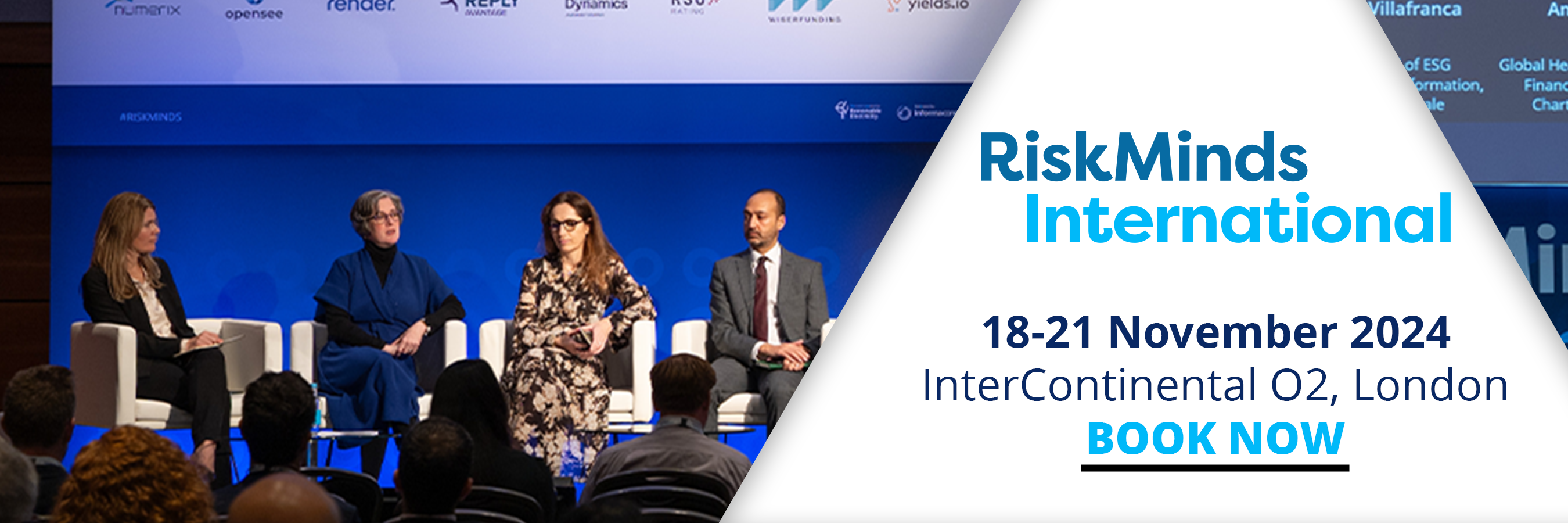Steps in the right direction: Evaluating the progress of diversity in risk teams

“Often I’m the only woman in the room,” stated one of the panellists during a session devoted to senior level diversity within the financial services industry at RiskMinds International, 13-16 November in London.
Held under the anonymised Chatham House rules, other women-only Chief Risk Officers (CRO) during the afternoon’s Leadership Forum shared their views on diversity and experiences from Crédit Agricole, Virgin Money, Standard Chartered (SC) Bank and MUFG. A macroeconomic look at what keeps CROs awake was also held earlier in the day, exploring the climate, geopolitics and AI risks facing the industry.
But this panel focused specifically on how many women, people of colour, different sexualities or other minority groups have joined boardrooms, taken up senior risk management positions (such as group wide CRO in recent years), and made an impact in their businesses. Two such Group CRO job titles were represented on the panel.
“Things have improved,” noted one of the panellists, “but it’s not a 50/50 split on gender everywhere yet. Certain fields, such as risk modelling [that are very mathematical] are still behind. Ethnic diversity is even further back in my opinion.”
“A gap remains at the senior level on both the gender and ethnicity metrics,” agreed another panellist. “Even if 35% of an organisation are women, for example, that isn’t necessarily reflected in the senior positions yet... I value diversity of thought, cultures and experience – as does my organisation – because they bring fresh ideas,” continued the panellist.
So, what steps could be taken to hasten change and bring about more diverse teams; attracting different sexualities and other traditionally hard-to-reach minorities – as well addressing the gender gap? Active campus recruitment to widen the early talent pool was thought to help, as would establishing support networks and mentoring programmes.
Making the most of diverse teams
Challenges nurturing a team encompassing many different cultures, and in supporting women to remain in financial services and continue to seek senior job titles after childbirth, were not ignored by the panel, but neither were the rewards of retaining diverse talent.
“I once managed 12 different nationalities in one team,” shared a panellist. “It was a challenge to meld such a diverse group of people into a cohesive whole that would speak up during team sessions, and not just afterwards in one-to-one situations. Some of the cultures were more naturally reticent than others. However, it was worth it and eventually ended up being the most rewarding experience of my career.”
Another Group CRO shared how she fought to convince a female colleague to remain at her firm after her second child was born, with flexibility being a key to help her role adapt to the colleague, not the other way around: “offering her a job that didn’t involve so many long trips abroad. This kept her in the organisation for later promotion if she performed adequately of course, which she did.” Remote working has clear benefits for business when looking to help to keep mothers (and fathers) with child rearing responsibilities within a financial services role, and this can also extend to other caring-responsibilities and even broaden access for colleagues with a disability.
Remote working: Not a "fix-all"
Flexible working is not a one-size fits all solution to creating strong diverse teams though. It can be almost “impossible” to get everyone to work together effectively “if they are not in the same place, in the office,” sharing water cooler moments and ad hoc mentoring as and when it is needed, argued one of the other panellists, as the debate turned to the impact of Covid-19 and the rise of remote working.
Another admitted it can be difficult to foster inclusion among diverse and geographically dispersed teams, especially for new joiners, but countered that virtual coffee mornings and clear communication can help. Turning video call cameras on and occasionally meeting up for physical team gatherings is also a prerequisite.
The danger of tokenism was also candidly debated. “I have a requirement to have a 50/50 list of applicants. But I always hire the best person for the job,” commented one of the senior CROs, arguing this helps avoids unfair accusations of tokenism taking hold in the first place and negates an unwanted mindset of just filling quotas.
Finally, the session moderator concluded: “In five years’ time I hope we don’t have to talk about this subject anymore”, and diversity will just be a given.
It is a noble ambition, and a sentiment echoed across the industry, and beyond. Progress is never usually linear, but a great leap forward in diversity would be most welcome. A proactive approach would also ensure the initiative remains within the control of the banks and financial institutions, without the need for regulators or pressure groups to step in and force change.
